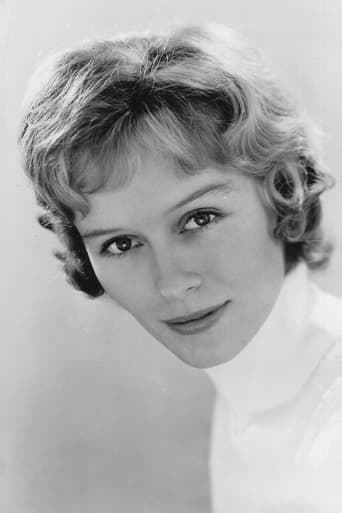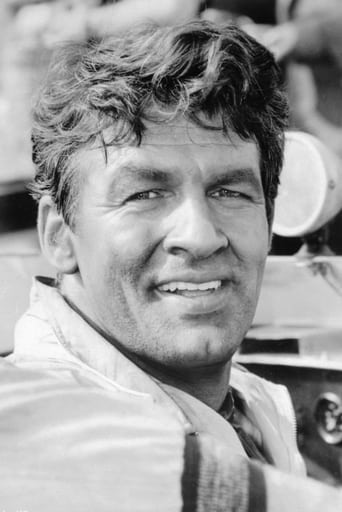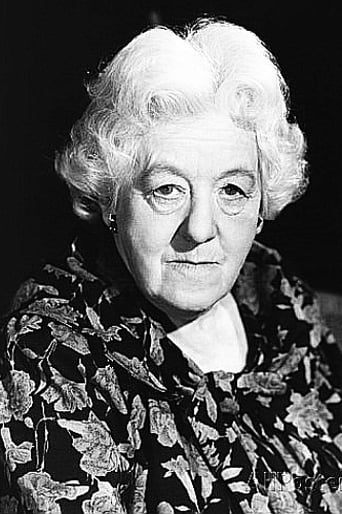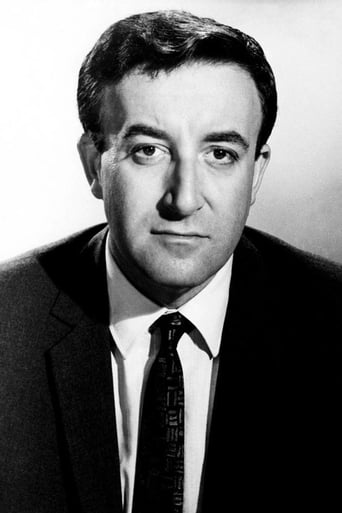mike48128
Is the UK title of this very cute and old-fashioned 1957 comedy about a young couple who inherit a broken-down "Kinema" movie house that was owned by a distant eccentric relative. It stars the real-life couple from "Born Free" Also staring Peter Sellers and Margaret Rutherford with a great Marilyn Monroe wannabe as the new "refreshment Girl". There seems to be an element of sad truth to the fictional story about a post-war "Bijou" straining to compete with the shiny new Grand Theater across the street. A lot of fun with numerous sight-gags about film projection mishaps: Soundtrack backwards, film upside down or backwards, film spilling on the floor, sped up, etc. Some are technically not possible anymore, since conventional film switched from double to single sided sprockets when sound film came into use. (Nowadays it's all on a disc for the most part. ) A switch-in-fortunes when the fabulous Grand Theater mysteriously "catches afire". Who done it? Watch the movie and find out! Enjoy this on TCM during a Peter Sellers film festival.
Charles Herold (cherold)
This is one of those charming British comedies about oddballs in a small town. In this case a young couple inherits a decrepit theater with three decrepit employees and attempts to run it in hopes of convincing another theater it's worth buying out to close down. It's a cute premise, even though the setup doesn't totally make sense (if the reason the competing theater wants the place is so they can have more parking, they would need it just as desperately, and be just as eager to negotiate, regardless of the theater's status).The movie is at its best when it shows the chaotic nature of the theater. There's a great scene where an elevated train situated nearby rumbles over the track and shakes the theater just as a train rumbles through the movie, thrilling the crowd. The staff is amusing and the couple is likable.At the same time, the movie has a sketched-out quality. The writers had a few ideas for gags and wanted a movie to put them in, so it gives you the gags in a haphazard way and then wraps it all up suddenly and rather oddly. Still, it's fun.
writers_reign
There is little to add to the mostly sympathetic reviews of this vintage (1956)comedy. Possibly 'charm' is the nearest one-word definition of its nostalgic appeal. It is highly unlikely that anything even remotely resembling a 'flea-pit' survives anywhere in England though their Gallic equivalents can still be seen in Paris albeit with a lick of paint and up-to-date projection, yet barely fifty years ago they were ubiquitous even in London - the Tolmer, P.O.W., Ionic etc. Like all good pastiche the film makers have caught the spirit of the flea-pit and added spin - in the main the flea-pits were run by average staff rather than the eccentrics-to-a-man staff of the Bijou. If nostalgia laced liberally with charm is your thing then this will prove a delight.
Bill Slocum
"The Smallest Show On Earth" is the kind of comedy they used to churn out in England with ferocious consistency; despite its charms not one to remember except for the presence of the greatest film comedian of the sound era just coming into his own.That comedian is Peter Sellers, and "Smallest Show" gives him fourth billing as alcoholic projectionist Mr. Quill, one of three employees at a broken-down cinema in the dregs of England who faces unemployment when a young couple inherits the place with plans to sell out.It's a small role, in a small film, but Sellers as Quill is very good, better in fact than he was earlier fare like "The Ladykillers" (great film, small part) and "The Naked Truth" (big part, lousy film). Here we see Sellers for the first time as the funnyman who can tug on your heartstrings, working your sympathies with just a furrowed eyebrow or shuffling of feet. From 1959 to 1965 he had as good a run in movies as any star ever did, and this 1957 effort served as springboard.That's not so much of a reason to see "Smallest Show" for non-Sellers fans, so here's another: Sellers doesn't even deliver the best performance. The other two staffers, Bernard Miles as Old Tom the doorman and Margaret Rutherford (an Oscar winner a few years later) as Mrs. Fazackalee the ticket woman are every bit as good, while Bill Travers and Virginia McKenna as the young couple make for pleasant company. If not for the fact the jokes are weak, and the storyline thin, this would be a true winner, rather than just a mildly worthwhile Ealing Studios-wannabe relic.The main joke in "Smallest Show" centers around the dilapidated state of the old theater, or "kinema", that the couple inherits. The projector threatens to fall apart whenever a train passes. The ceiling is festooned with cobwebs. Portraits of Theda Bara and Douglas Fairbanks Sr. line the walls, and the features on offer are ancient cowboy films starring "Drifting Slim Stanley, Deputy U.S. Marshall". It's at times a stirring tribute to the movie business in its infancy, especially one scene where Mrs. Fazackalee plays her house organ to the flickering light of an old silent. But it never gels as a story."I'm sure there's a business like show business, but somehow I don't think this is it," McKenna's Jean jokes when the couple first get an eyeful of the place. That's about as good a one-liner as this film manages, despite the presence of "Ladykillers" writer William Rose as a scripter here.Director Basil Dearden makes sure we get plenty of cute scenes featuring Travers and McKenna struggling with the way things operate in their new place. The plot, what there is of it, centers around the couple's attempt to make a go at running the movie house, or at least making it look like they are, in order to persuade the owner of a rival theater to buy them out. The rival owner resorts to some shady tricks, but one never really has to worry overmuch how things turn out, as it falls together rather conveniently.The charm's the thing, the only thing, in watching Travers' reaction when accepting a chicken for admission, or Quill and Fazackalee at each other's throats regarding their new bosses' spending priorities: "My equipment is more important than your rats," Quill shouts, showing off Sellers' ability to melt into a thick northern English old-man accent with the help of some clever makeup.Unlike his earlier films, he really gives you a lump in the throat in this one, struggling with the bottle or skipping along a sidewalk after a good day at the box office, making you understand that the secret to Sellers was never just clever accents or physical pantomime but the preternatural empathy he brought to every part, beginning with this one.




